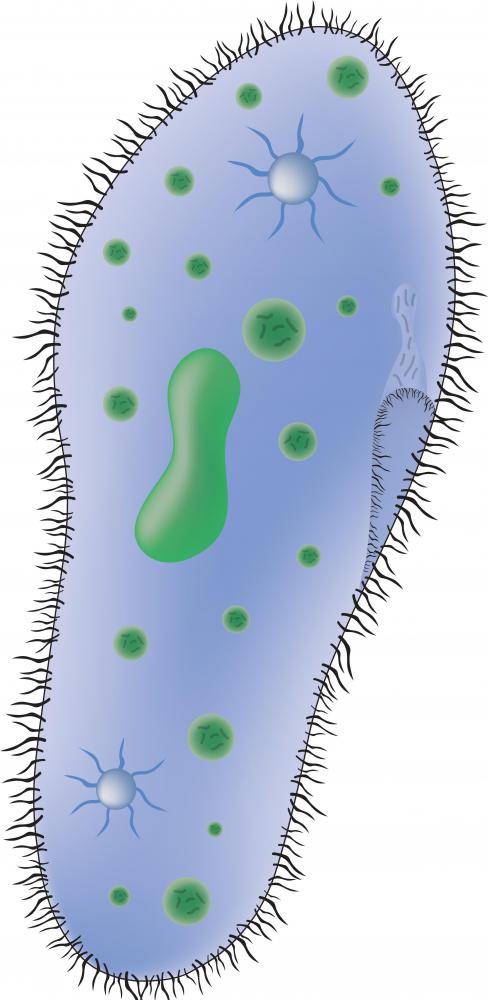What is Freshwater Ecology?
 Jessica Ellis
Jessica Ellis
Freshwater ecology is a specialized subcategory of the overall study of organisms and the environment. Unlike biology, ecology refers to the study of not just organisms but how they react, and are affected by the natural surrounding environment or ecosystem. By studying the plants and animals in a body of water as well as the components of the water itself, a scientist specializing in freshwater ecology can discover vital information about the health and needs of a freshwater system.
Rather than study the vast world of saltwater like marine ecologists, scientists that work in freshwater ecology concentrate on the ecosystems of bodies of non-brackish water, such as lakes, ponds, and streams. Some may also work in wetland environments where the water is primarily fresh. The information that freshwater ecologists gather can be helpful to conservation efforts for plants and animals, but also provides data that can effect humans as well.

In the study of freshwater ecology, scientists attempt to get accurate ideas of how a body of fresh water goes about its daily existence. Every detail, from the microbic creatures busily creating algae, to the large reptilian or avian predators present, effects the life of the ecosystem. New factors can disrupt and reorganize the ecosystem dramatically, and can range from an introduced exotic species, chemical runoff from a new industrial plant, or even increased usage if the lake becomes a tourist spot. By understanding how this body of water behaves under normal circumstances, freshwater ecologists can make an educated guess as to how new factors will effect the local environment.

For conservation efforts, freshwater ecology can give roughly accurate ideas of how populations of plants or animals are surviving in their environment. This can help determine whether a fading species is given protective status by governing bodies, or whether an already endangered species is recovering due to conservation efforts. Although most of the work is based on probabilities and population graphs rather than literal census taking, freshwater ecologists can give a fairly clear picture of which way a species is going, and identify key factors that determine its situation.

Humans benefit from the studies of freshwater ecology as well. As the largest component of the ecosystem, the water is constantly tested and analyzed for important data such as chemical composition and possible hazards. The work of freshwater ecologists can be used to determine the viability of a new drinking water source, or test a current water source for possible contamination. By protecting drinking water sources, freshwater ecologists are contributing not only to the good of the environment, but the good of their own species as well.
AS FEATURED ON:
AS FEATURED ON:














Discussion Comments
@irontoenail - Unfortunately it's even more difficult to remove invasive species from freshwater systems than it is from anywhere else because everything is so connected by the water. It's not like islands where you can design poison traps that only unwanted rats will eat, leaving the native birds alone. The koi breathe the same water that everyone else does in the river and they eat the same food.
Not to mention that fish usually breed in very big numbers and the ecosystem relies on predators to keep those numbers reasonable. If there are no suitable predators the numbers can explode very rapidly.
@KoiwiGal - That is largely true of a lot of ecosystems I think. They are responsive to the pressures that they have adapted to. And that's the trouble with a lot of freshwater ecosystems at the moment. Either one element is missing or another element is present that doesn't fit. Koi carp, for example, have exploded in population in many parts of the world where they are introduced species because there is nothing to bring their numbers down.
Just last night I watched an amazing documentary that described the ecosystem of a beaver pond and how the beavers influence it. I have never realized how much they really do to change their environment. They even dug little channels in order to be able to float the trees they cut down into the pond.
Apparently they only stay in one place for a few years, until the trees there are exhausted and then they move on to another pond and let the one they just left regenerate. That's another thing that I would never have expected from nature. I always assumed that everything just lived in equilibrium all the time, but it seems more like ecology is about a swinging pendulum where one organism increases population and then declines so another can take its turn.
Post your comments